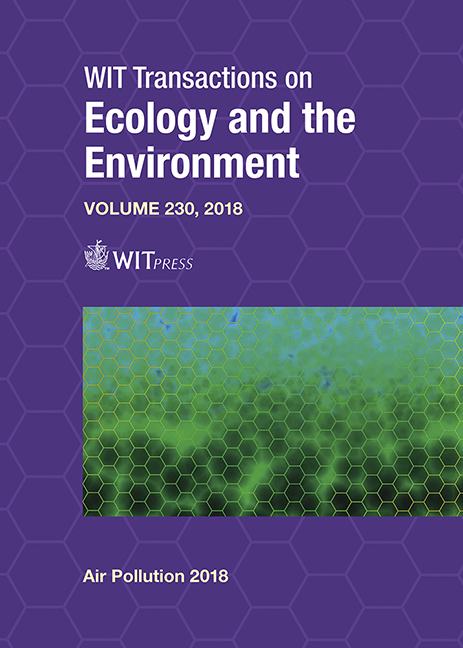PROJECTING THE ENVIRONMENTAL IMPACT OF DIESEL CARS ON GASEOUS POLLUTANTS, PM2.5 AND CO2 IN A METROPOLITAN AREA
Price
Free (open access)
Transaction
Volume
230
Pages
9
Page Range
409 - 417
Published
2018
Paper DOI
10.2495/AIR180381
Copyright
WIT Press
Author(s)
ANDRÉ LUIZ SILVA FORCETTO, RUI DE ABRANTES
Abstract
Almost all passenger cars (PC) in Brazil are flex fuel (can run any proportion of petrol and ethanol) and diesel fuel is prohibited to these cars; diesel is available for vans and pickup trucks, as well petrol and ethanol. However, there is a proposal under discussion to introduce diesel PC in Brazilian market, arguing that they have better autonomy and emit less CO2 and pollutants. The goal of this paper is to show the impact on pollutants and CO2 emissions from diesel PC being offered as a main option; it will be discussed also an alternative scenario, the environmental impact if Internal Engine Combustion (ICE) vehicles are banned in favor of electric ones. Data analysis was performed on type-approval tests of petrol / flexfuel light duty vehicles (LDV). For the first case, the projection for introducing PC diesel in SPMR market shows a significant increase in NOx emission, small rise for fine particulate matter (PM2.5) and little reduction for HC, CO and total CO2, although with significant rise for fossil CO2. The alternative scenario, replacing ICE PC with electrics, shows high reduction for NOx, some gain for CO2 and PM2.5 and small decrease for CO and HC. Thus, the use of diesel PC will lead to NOx increase; by other hand, biofuels can reduce CO2 but will increase NMHC and CO emissions. Electric PC may be a good option but requires time to replace ICE vehicles and bringing effective environmental gain.
Keywords
diesel cars, NOx, PM2.5, air pollution, biofuels





